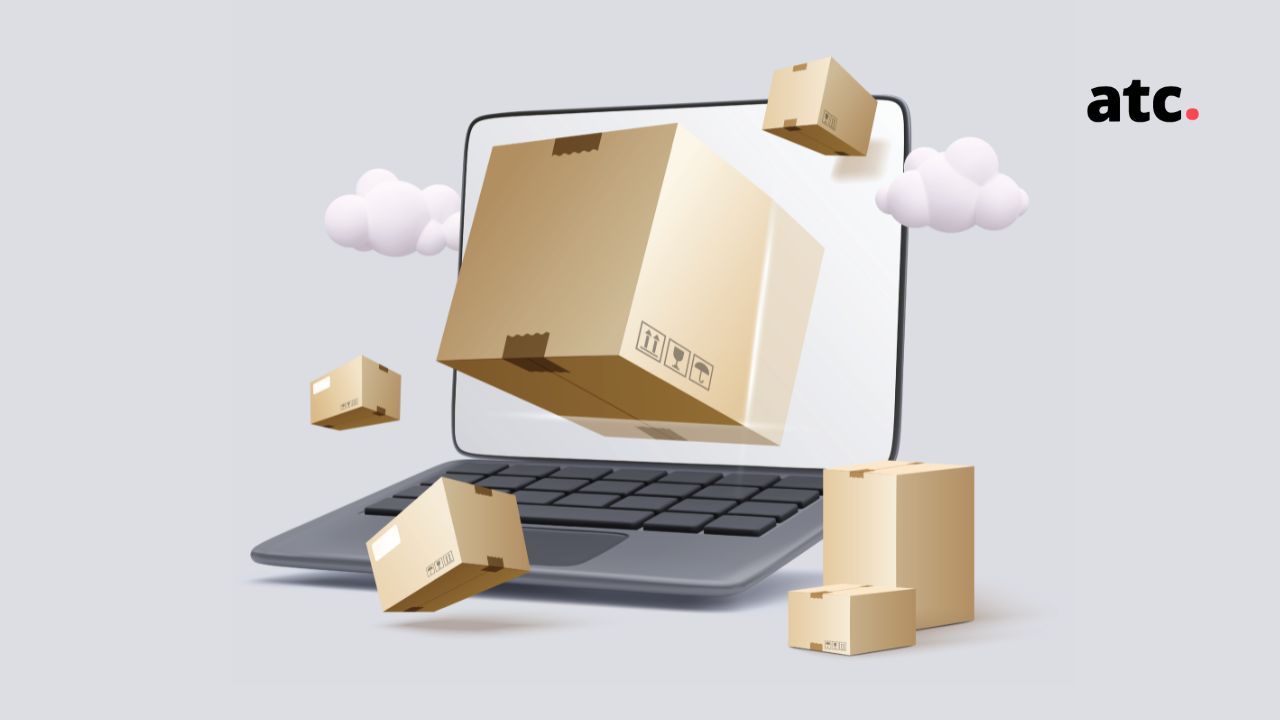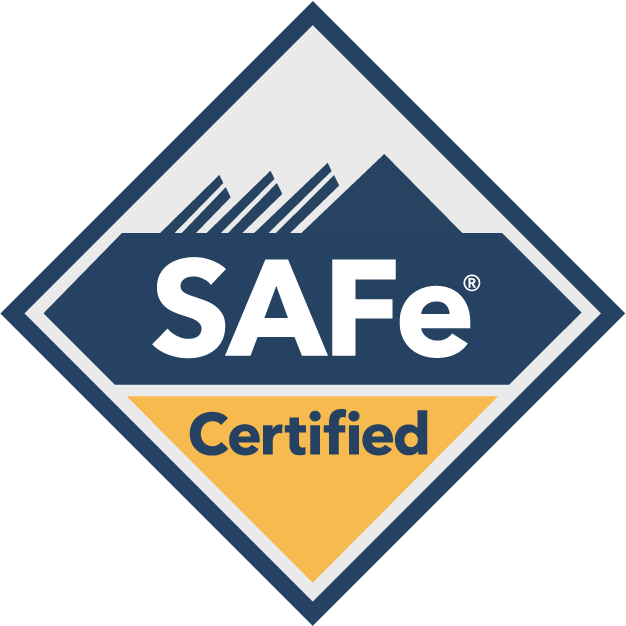Subscribe to the blog
The logistics industry is quite vast and complex, meaning that there are several aspects you need to take care of. Sourcing, manufacturing, handling, inventory, delivering, transporting goods, warehousing, etc., are some of them. And without a robust system in place, it’s hard to compete with the existing players.
Several logisticians use on-premise software to streamline different operations and improve workflows. But unfortunately, on-premise solutions aren’t flexible enough to handle the logistics segment effectively.
This is when SaaS solutions in logistics come into the picture. So, how are SaaS solutions in logistics better than on-premise software? Well, that is exactly what we talk about in this article.
We’ll start by discussing how SaaS solutions in logistics is better and then move on to its advantages. In addition, we’ll also mention specific technical recommendations and features to consider while building Logistics SaaS. So, keep reading.
How are SaaS Solutions in Logistics Better than On-premise Software Solutions?
Here’s how:
- Accessibility
SaaS solutions in logistics can be accessed from anywhere and on almost any device. However, on-premise software requires installation, which, in turn, limits accessibility.
- Customisation
SaaS solutions offer you numerous customisations to choose the features you need. Also, the customisations and upgrades are easy.
However, on-premise software comes with numerous basic features that aren’t really necessary. Also, updates require time and capital to be installed, which is quite a hassle.
- Hosting
SaaS solutions in logistics are hosted on the web and don’t require any server hardware. This means that you don’t have to install or maintain infrastructure, unlike on-premise software.
- Easy Backups
SaaS solutions come with off-site backups which saves you time and money. However, it would help if you had an engineer to deal with backups and security issues for on-premise software.
Advantages of SaaS Solutions in Logistics
This section talks about how SaaS solutions help manage various aspects of logistics better.
- Enhanced Workflow
Logistics SaaS can help you improve the workflow in your organisation. For example, you can easily automate redundant tasks such as regular paperwork or documentation. This way, your employees can focus on more critical tasks that require human intervention.
- Better Data Handling
SaaS solutions are cloud-based, making it easy to source, store, use, analyse, and secure the data. You can also use forecasting features to minimise inventory losses and accurate deliveries as well as prevent last-minute emergencies.
Furthermore, there isn’t a physical drive where you store the data. This way, you don’t have to pay for the infrastructure installation or management, which saves you money.
- Enhanced Data Analysis
Earlier data was merely collected and stored, like in the case of commercial airlines, which keeps the customer data and flight information.
However, with time, organisations have understood the importance of data analytics. As a result, organisations creatively use data to make informed decisions.
Fortunately, SaaS solutions in logistics can help you with this. With a robust SaaS solution in place, you can analyse different processes and detect and rectify issues, if any.
- Better Supply Chain Visibility
Real-time visibility into different logistics processes and data is essential for companies to keep operations under control. And a robust SaaS solution for logistics can help you achieve this. You can have a hawk-eye view of all the processes and deal with discrepancies as and when they arise.
- Financial Benefits
When it comes to on-premise software solutions, organisations have to purchase licences, pay for server management, pay the per device expenses and install the software on different devices. All this amounts to a lot of capital.
On the contrary, SaaS solutions in logistics require no pay-per-device licences, installation, server management, etc. Instead, you pay for only the features your organisation uses. This way, you can minimise your expenses while ensuring high returns on investment.
What Aspects Can You Manage with a SaaS Solution in Logistics?
Here are the tasks a SaaS solution in logistics can help you manage:
- Enterprise Resource Planning
- Customer Relationship Management
- Fleet Management
- Warehouse Management
- Transportation Management
Earlier, different systems dealt with all of the above tasks or aspects. But now, with SaaS solutions in logistics in place, you can deal with all of them using a single system. Let’s talk about these aspects/systems/tasks in detail:
- Enterprise Resource Planning System
An Enterprise Resource Planning system helps organisations track resources and automate different processes across every department. Logisticians can use an ERP system via SaaS for managing real-time data and information flow and providing access to that information to the involved individuals.
With a robust SaaS solution for logistics, you can use ERP to:
- Track Inventory Locations
- Optimise your Inventory
- Easily Process Purchase Orders
- Plan & Manage Deliveries
- Improve Information/Data Workflows
- Create Reports
- Transportation Management System
The role of a transportation management system is to enhance shipping efficiency, reduce transportation costs, ensure timely deliveries and returns, etc. With a SaaS solution in place, you can easily manage transportation and:
- Track Cargo
- Schedule Shipments
- Manage the Bills and Payments
- Books the Shipments and Track Them
- Easily Source the Rates of Different Carriers
- Choose the Correct Route
- Ensure a Seamless Flow of Shipments
- Warehouse Management System
Warehouse management systems help manage the warehouses and ensure smooth inventory movement within the warehouse. With an effective warehouse management system, you can automate different processes and:
- Help your Workers Locate the Goods Easily Regardless of the Size of the Warehouse
- Track Employee Performance Using Analytics and Reports
- Integrate Third-party Systems
- Automatically Generate Invoices and Bills
- Organise inventory in a warehouse
- Fleet Management System
A Fleet Management System helps manage vehicles such as cars, trucks, vans, planes, ships, etc. This system enables you to track the movement of vehicles using GPS trackers, which can be pretty helpful as you can get the real-time location of the cargo.
With a SaaS logistics solution, you can easily take care of the fleet management system, which enables you to:
- Track the Vehicles
- Stay Connected with the Drivers
- Plan the Route, Fuel Along with Other Supplies
- Store the Data Regarding Vehicle Diagnostics
- Ensure Regular Vehicle Maintenance
- Manage Driver Schedules
- Comply With the Legalities
- Customer Relationship Management System
As the name says, the customer relationship management system focuses on your customer interactions. This set helps you manage customer relations and improve by offering you detailed reports. With a customer relationship management system, you can:
- Store customer records include contact info, interaction details, payments, orders, etc.
- Store the details of every order, which provides route, cargo, carriers, third parties, etc.
- Track everything from the sales process to customer feedback.
- Get detailed information/reports on client preferences and improve the overall customer service.
Features to Consider While Building a SaaS Logistics Software
Now that you know the advantages of SaaS solutions in logistics and the aspects it helps you with, let’s talk about some essential features for your SaaS tool:
- Forecasting
A robust forecasting feature in the logistics industry can help you determine what to expect in the coming years with regards to prices, supply, demands, rates, etc. This way, a company can be prepared for anything that is to come.
Small-scale logisticians can analyse their previous workflows and forecast according to that. On the other hand, large-scale logistics companies have data analysts who can deploy algorithms for forecasting to enhance accuracy and reduce the error margin.
What’s more, a forecasting feature in your SaaS solutions in logistics can help you make informed decisions regarding:
- Asset Planning
- Fleet Management
- Transportation
- Price/Rate Calculation
Price or rate calculation is a cumbersome procedure because an individual has to consider numerous factors such as:
- Profit Margins
- Custom Expenses
- Fuel Charges
- Driver’s Expenses
- Port Fees Etc.
However, you can incorporate a feature that takes all the required values and presents the correct price. It will not only help you save time but also improve accuracy. So, make sure that your SaaS solutions in logistics have a well-functional rate/price feature.
- Shipment Tracking
If you know the exact status of the shipment in real-time, you can manage your work better, keep the customer satisfied and solve the problems before they cost you money.
For example, using real-time tracking, you can see that the shipment is moving late, you can intimate the customer and other involved parties. This way, you can avoid late payment charges, and your customer won’t see your business in a bad light.
For tracking vehicles on the road, you can integrate a GPS tracking system that connects your SaaS solution to the vehicles like trucks, cars, vans, etc. And for ships or planes, you can check the ship or flight status on the online portal.
- Load Optimisation
When logistics companies expand, the fleet, annual shipments, parties involved, and customers increase. And this can make it hard to manage the load and distribute the same to customers.
However, SaaS solutions in logistics can make this easy. If your company manages thousands of shipments each year, you can integrate a feature that works on load optimisation and considers factors such as:
- Routes
- Cargo Types
- Delivery Dates
- Warehouse Locations
- Vehicle Types
- Custom Regulations Etc.
Your SaaS solution will give you accurate information after considering the above factors, which can make load optimisation a breeze. However, make sure to keep this feature customisable to suit the needs of every user.
- Document Management
Even a small-scale logistics company deals with a lot of documentation, including bills, customer info, tracking info, warehouse details, vehicle info, etc. And no matter how expert an individual is, they can always make a mistake while entering this information manually.
So, what’s the solution? With SaaS solutions in logistics, you can manage this problem by automating documentation management. Here’s what all you can automate:
- Creating Invoices and Sending Them
- Entering Transportation Data
- Guarantee Letters
- Entering Warehouse Data
- Preparing Reports Etc.
This feature in your SaaS solutions in logistics can help you quickly document all the data with utmost accuracy. Furthermore, you can use your resources(employees) in other non-redundant and valuable tasks.
- Third-Party Integration
Third-party integration is a necessity for SaaS solutions in logistics. Therefore, you must include some basic integrations to third-party tools such as Google Docs, Account software, documenting software, etc., to help your customers work conveniently.
For example, if your customer wants to access his shipment and the related details along with the documentation, they might need the help of some other application. And if your SaaS solutions in logistics offer easy integration, it would make it easy for the customer to get the info they seek.
Technical Recommendations for Building SaaS Solutions in Logistics
Along with the above features, you need to consider some technical recommendations for creating robust, well-functional, and reliable SaaS solutions in logistics. Here are the technical recommendations worth considering:
- Multitier Architecture
Logistics companies have to deal with tonnes of data and involve several parties such as:
- Customers
- Freight Agents
- Shipping Agents
- Customs
- Port Authorities
And without a SaaS solution in logistics that doesn't support multitier architecture managing the above isn’t possible. So, while developing SaaS solutions in logistics, ensure it supports a multitier architecture.
- Customisations
Customisations are essential as most organisations never care to change the software for extra features and try to manage what they have.
However, if you develop SaaS solutions in logistics that are open to customisations, you can easily modify or customise the SaaS tool according to your infrastructure.
- Machine Learning and AI
By integrating AI and ML in your SaaS solutions in logistics, you can enhance data collection and automate every inventory process. For example, Ocado, a British Supermarket, uses ML to optimise product layout in the picking area to ensure a streamlined process.
What’s more, you can use AI to forecast expenses, and customer demands calculate expenses.
- A Robust Security System
The logistics data/information contains tonnes of sensitive data such as driver details, cargo location, delivery location, employee data, customer information, etc. So, it’s of utmost importance that you ensure that sensitive data is collected and stored safely.
You can use encryption to protect this sensitive information. Furthermore, you can use secure authentication and limit sensitivity to a handful of trusted people. This way, you can significantly improve security.
- Support System
Customer satisfaction should be your top priority. One way to ensure that is by offering decent support to your customers whenever they require it. You can do that by creating a simple guide, tutorial videos and hiring a support team to tackle all the customer queries.
- Internet of Things and Blockchain
By integrating IoT in SaaS solutions in logistics, you can ensure better visibility. It’s because IoT allows you access to real-time and accurate data/information regarding:
- Delivery Routes
- Road Conditions
- Warehouse Inventory
And by using such information, you can make well-informed decisions.
In addition to IoT, you can use Blockchain to create a transparent, traceable, hack-proof repository meant for documentation.
Who can Help?
By now, you would know how advantageous SaaS solutions in logistics are and what things you should consider before developing one. But how can you create SaaS solutions in logistics which are customised according to your organisation’s needs?
Well, this is where ATC or American Technology Consulting comes into the picture. ATC is a company that helps established businesses, startups, and entrepreneurs build products and solutions to solve their problems with the creative use of technology. Check out our guide on building Saas Products
American Technology Consulting holds expertise in several domains such as blockchain development, custom app development, SaaS solutions, cloud transformation, business intelligence, kubernetes, and whatnot.
ATC’s team of seasoned experts will first understand your organisations’ requirements and devise an action plan for creating SaaS solutions in logistics. So, you can expect a tailor-made SaaS solution in logistics that works effectively and gets the job done.
Conclusion
Whether you’re in the freight, logistics, or courier industry, if you’re using on-premise software, you’re missing out on many things. Not only are on-premise solutions rigid and inflexible to updates but also costly.
Therefore, a smart move would be investing some time and capital in a SaaS solution. But, as said earlier, SaaS solutions in logistics bring several benefits and make managing logistics a piece of cake. So, make sure to reach out to ATC, discuss your requirements, and get an estimate.
Several companies are already benefiting from SaaS solutions in logistics, and so can you. To learn more, contact ATC right away.




